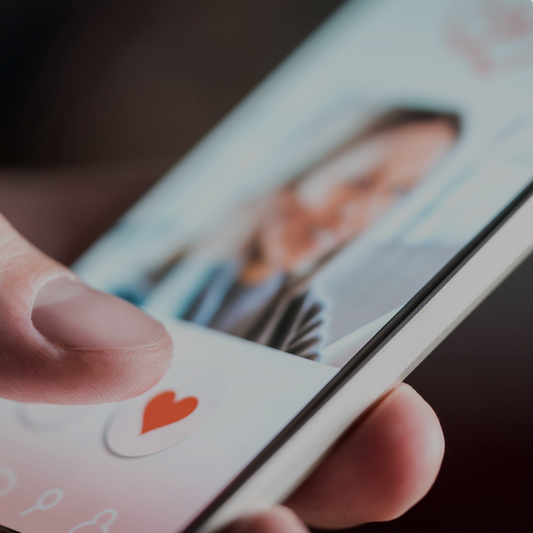
How Do I Know If I Have HIV?
If you think you may have been exposed to HIV, the only way to know if you have the virus is to get tested. This may feel scary but the most important thing with any sexually transmitted infection is knowing your status and getting the medical care you need as soon as possible.
HIV is primarily transmitted through anal sex or vaginal sex with an infected person. You can also transmit HIV through blood, such as by sharing needles during drug use, or through childbirth or breastfeeding. It is very rare to get HIV through oral sex. You cannot get HIV by sharing food or drinks, touching objects used by an infected person, or from mosquito bites.
There is a lot of very helpful information available online about HIV, but it is still a misunderstood topic. The HIV virus and its treatment have come a long way since it was first discovered in the 1980s. You can still lead a normal life with HIV, as early diagnosis and effective treatment can slow the progression of the virus and prevent serious health problems. In this article, we will outline some early HIV symptoms and share information on the next steps to take.
What is HIV?
HIV stands for human immunodeficiency virus. It is a virus that attacks the immune system, which is our body's natural defence against illness. Over time, HIV can cause serious health problems and lead to AIDS (acquired immunodeficiency syndrome) if left untreated treated. It is estimated that over 100,000 people are living with HIV in the UK. Around 5,000 of these are undiagnosed, so do not know they are HIV positive.
Symptoms of HIV
There is a misconception that only certain groups of people, such as gay men or drug users are at risk of contracting HIV. This is false - anyone can get HIV. HIV symptoms can vary from person to person, and some people may not experience any symptoms at all after being infected. However, the most common early symptoms of HIV include:
- Flu-like illness such as fever, fatigue and/or a sore throat
- Body rash
- Swollen lymph glands
- Mouth ulcers
- Muscle and joint pain
- Nausea and vomiting
- Night sweats
- Unexplained weight loss
If you have any of these symptoms, it is important to see a doctor or order an HIV test. If you are diagnosed HIV positive, a doctor will work with you to develop a treatment plan. It is important to start HIV treatment as soon as possible to slow the progression of the virus and prevent serious health problems.
HIV symptoms in women
In addition to the symptoms mentioned above, women with HIV may also experience:
- Vaginal yeast infections
- Irregular menstrual periods
- Pelvic inflammatory disease
- Bacterial infections of the vagina
HIV symptoms in men
Men with HIV may also experience:
- Yeast infections of the mouth or throat
- Genital herpes outbreaks
- Gonorrhea or chlamydia infections
Testing for HIV
If you have had sexual contact with an HIV positive person and/or are experiencing any HIV symptoms, it's important to take a test. It may feel scary, but it's scarier not knowing a positive HIV status. You can order a home STI test kit from iPlaySafe here. It will be delivered within 2-5 working days and you can take the HIV test at home. You'll be required to take a blood test and provide a urine sample and return them to the lab in the pre-paid envelope provided. It's a quick and simple way to test, and you can find out more information about the process here.

What is the HIV window period?
The HIV window period is the time it takes for a person's body to produce enough HIV antibodies to be detected in a test. This can range from a few weeks to several months, depending on your immune system and its response to the virus. During this time, a person who has been infected with HIV may not have enough antibodies in their blood to be detected by an HIV test, even if they are already contagious and can transmit the virus to others. If you have been exposed to HIV it's important to get tested as soon as possible and to repeat the test several weeks later to confirm the results. This will help ensure that you receive the necessary medical care and support if you are found to be HIV positive.
Treating and living with HIV
HIV treatment is effective and enables people living with HIV to have long and healthy lives. HIV medicine is called antiretroviral therapy and it works by suppressing the virus to create an undetectable viral load. An undetectable viral load means that there is not enough of the virus present in a person's blood to be detected by a viral load test. This doesn't mean the person is cured. It means that the risk of transmitting HIV to others is greatly reduced.
If you are diagnosed HIV positive you can still have relationships and have sex, as long as you are receiving antiretroviral therapy and are open and honest with people you're coming into sexual contact with. Your potential sexual partners should take pre-exposure prophylaxis (PrEP), which is a pill that can reduce the risk of HIV transmission by up to 99% when taken as prescribed. Find out more about PrEP here.
FAQs
What is usually the first symptom of HIV?
The first symptoms of HIV can vary from person to person. For some people, the first symptoms may appear within a few weeks after infection. Others may wait several years for symptoms to develop. The most common symptoms of early stage HIV include:
- Flu-like symptoms such as fever or sore throat
- Extreme and unexplained tiredness
- Body rashes
- Swollen lymph nodes
When do signs of HIV start showing?
Most people infected with HIV experience mild symptoms and a flu-like illness that occurs 2-6 weeks after infection, as the body's immune system begins to fight the virus. Once these initial symptoms disappear HIV may not display any symptoms for several years.
If you are experiencing any of these symptoms, it doesn't necessarily mean you have HIV. These symptoms are shared by other illnesses. But if you've had sex with someone that is HIV positive or have any other reason to believe you may have been exposed you should order a home STI test kit here.
How can you tell if someone is HIV positive?
The only way to know for sure if someone is HIV positive is for them to undergo HIV testing. Be mindful of the window period as multiple tests may be needed to confirm the results are accurate.
What are the 4 stages of HIV infection?
The four stages of HIV infection are:
- Acute HIV infection: This is the first stage of HIV infection, and it typically occurs within a few weeks of being infected. During this stage, the virus replicates rapidly and can be transmitted to others. Symptoms of acute HIV infection may include fever, fatigue, sore throat, and a rash.
- Clinical latency: Also known as the asymptomatic stage, this is the second stage of HIV infection. During this stage, the virus continues to replicate, but at a much slower rate. Most people do not have any symptoms during this stage, but the virus is still present in the body and can still be transmitted to others.
- AIDS: The third stage of HIV infection is called AIDS, or acquired immunodeficiency syndrome. This stage is characterised by a weakened immune system, which makes it difficult for the body to fight off infections and diseases. People with AIDS may experience symptoms such as fever, weight loss, and severe fatigue.
- AIDS-defining opportunistic infections: The final stage of HIV infection is characterised by the development of opportunistic infections, which are infections that occur in people with weakened immune systems. These infections can be serious and even life-threatening if not treated promptly. Examples of opportunistic infections include pneumonia, tuberculosis, and certain types of cancer.
It is important to note that the progression of HIV from one stage to the next can vary depending on a number of factors, including the person's overall health and the effectiveness of their treatment.
Can HIV symptoms appear in 3 days?
It isn't common for HIV symptoms to appear within three days of infection. In most cases, symptoms appear within 7-14 days of exposure. However, if you're at all concerned you should order a test or speak to a doctor for peace of mind.
Can HIV be cured at an early stage?
HIV cannot be cured, but it can be treated and managed with medical care and enable you to live a long and healthy life. With an early diagnosis and prompt treatment, HIV medicine (antiretroviral therapy, or ART) will suppress the virus and prevent it from multiplying. ART is as simple as a daily combination of pills that help to prevent further symptoms and the progression of HIV within your body.
If I have HIV, what happens next?
If your HIV test result comes back positive, it's normal to feel scared. There is a stigma around sexually transmitted infections and people tend to feel fear, shame and anger/upset when they are diagnosed. But you have nothing to be ashamed of, and there are so many resources online and support groups to help you through this process. iPlaySafe has a whole blog dedicated to the next steps after an HIV diagnosis, featuring HIV+ activist Jay Hawkridge. You can find that here. You can also find helpful information and support through the Terrence Higgins Trust.

























